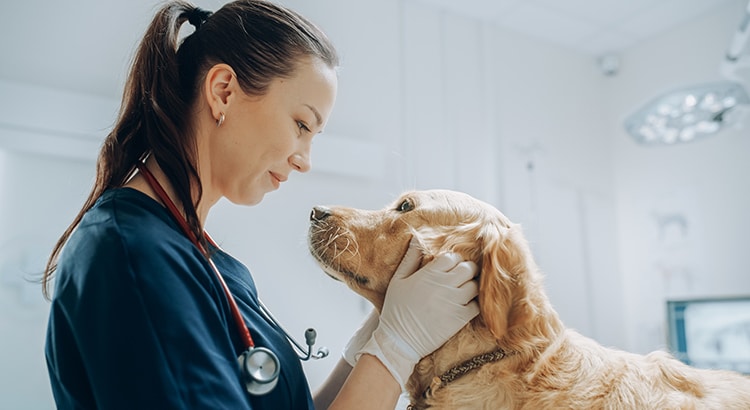
Lymphoma in Dogs: Symptoms, Diagnosis and Treatment
Lymphoma in dogs is described as a cancer of the lymph nodes and lymphatic system. The lymph nodes are responsible for the creation of lymphocytes as part of the immune system that work to protect the body from infection and fight diseases. Lymphoma in dogs is a term used to describe a group of cancers that stem from the lymphocytes, according to the American Kennel Club.
Lymphoma affects approximately 13 to 24 dogs per 100,000 annually.
Signs of Lymphoma in Dogs
Different types of lymphoma present with different clinical signs including weight loss, lethargy, anorexia or polydipsia. Swollen lymph nodes can be felt beneath the skin and others are visible without palpation due to their size. Some types of lymphoma cause difficulty breathing depending on their location.
Diagnosing Lymphoma in Dogs
Confirming a lymphoma diagnoses in canines is accomplished by taking a biopsy of the tissue or cells thought to be affected. The fine needle aspiration is quick and usually enough to make the diagnosis. Specialized tests can then be used to complete the diagnosis. Caninelymphoma.com lists the following tests to diagnose the stage of lymphoma:
Types of Lymphoma in Dogs
While there are over 30 types of canine lymphoma, there are four anatomic forms that dog owners should know about.
Life Expectancy for Dogs with Lymphoma
Life expectancy is dependent on the type of treatment provided. A pup who does not receive treatment can expect to live 4 to 6 weeks while a pup who receives chemotherapy can expect to live an average of 6 to 12 additional months.
Treatment of Lymphoma in Dogs
There are numerous chemotherapy treatment plans that can be considered to manage these types of canine cancers. Most canines are prescribed a drug cocktail that includes Cyclophosphamide, Vincristine (Oncovin), and Prednisolone. While there is not a “one size fits all” treatment plan for lymphoma in dogs, the best care plan can be determined by consulting with a veterinary surgeon or oncology specialist.
If you suspect your dog has lymphoma and are unable to seek veterinarian treatment, there is another option. Our Pin Paws Plus membership offers access to whiskerDocs, 24/7 telehealth for pets. Owners can talk, chat or message with veterinary specialists and ask those lymphoma related questions, or any others. Click here for more information.




